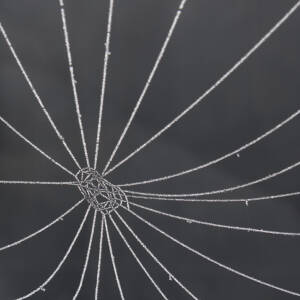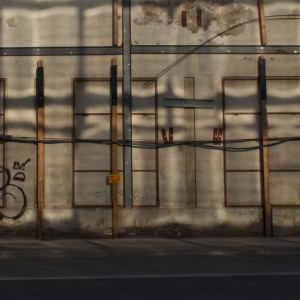Palette (aka tl;dr)
When I saw the forecast for a full day of sunshine, I decided to spend the day in two large parks containing ex-royal palaces. At the bus stop to get to the further of the two, I was checking bus times when a man in a red tabard appeared out of nowhere and told me that buses weren’t running from that stop today, I’d need to walk to the next one. Off I walked. But at that stop another man in a red tabard appeared out of nowhere and told me that buses weren’t running from that stop today, I’d need to walk a kilometre further on.
It turned out the Warsaw marathon was today and by the time I’d walked another kilometre alongside the stragglers, I was already at the nearer of the two parks – Łazienki Królewskie – so decided to start there instead. Lovely: loads of trees in early spring green, daffodils, a stream, the odd folly, a lake with a palace in the middle.
Over coffee in the sun I read about communist Warsaw and decided I didn’t want to see another royal palace, I wanted to go and look at some grandiose architecture and climb a tower. So I walked back to town, stared at the erstwhile Central Committee of the Polish United Workers Party (big but not brutal, at least in architectural terms) then followed the Free Speech Memorial – a very long wide black line, erasing any text that might be below – from there to the erstwhile Censorship Agency. Where, in the name of free speech, it curled up and stopped. Clever.
Via an old-style communal canteen, where I ordered one of the only two words on the menu I understood (because I ate the other one yesterday), I walked to Plac Konstytucji, constructed 1950-52 as a focal point for state parades (though used more to park cars). Then down the parade route to Stalin’s gift to the city, the Palace of Culture and Science – a King Kong-scale tower modelled on the Empire State Building. It was too clear a day not to take the lift to the 30th floor for a view north to the old town, east to Praga, south to where I was this morning and west to where my train came from on Friday.
All that should have been enough foot-kilometres but I wasn’t too far from the remnants of the Warsaw ghetto wall so I marched on to see them. And could I find a way across Pope John Paul II Avenue? Most roads are easy to cross but this one not only had an endless stream of cars in both directions, alarming tram tracks in the middle and no crossing place, but also a fence down the far side. I’ve done an embarrassing amount of jay-walking in front of incredibly well-behaved Poles, but I wasn’t going to try that one.
I don’t think JPII would have approved of blocking my way to the Jewish ghetto (thereby forcing a bewildering detour via the station) but the kilometre added to my day was worth it: when I finally found the courtyard between two large and unremarkable blocks of flats, and saw the two small lengths of badly-built brick wall that once enclosed 400,000 Polish Jews, I was undone.
I walked on through the ghetto, now visible only on maps and the occasional road-marking, to the place where a bridge connected its two parts under which Poles not identified as Jewish could walk freely. Photos at the site made that very real.
Back through Plac Grzybowski where the priest of All Saints Church, which was in the ghetto, helped some Jews escape. After it was rebuilt following the Warsaw Uprising, the communist government attempted to eclipse it by putting much bigger buildings around. Wimps compared to the monuments to capitalism that now dwarf it.
I thought that was the end of my day, but the waiter called to translate my English in the little café where I went for falafel asked me where I was from. I also asked where he was from: Syria. I told him I was very sorry about what had happened to his country. He thanked me and brought me a glass of orange juice as a gift from him. I asked him what work he used to do. There was a long, dignified silence while he weighed up whether to trust me. I thought he was going to say architect. ‘I was a judge,’ he said. I told him about my work and we talked about different European countries’ reactions to refugees. He is in touch with Syrians across Europe on Facebook and he told me that Poland is dreadful. I already knew that but it’s shocked me anew after three days immersed in Polish history. What does it take to excise empathy?
But thank goodness that my Arabic is very slightly better than my Polish. And thank goodness that it is acceptable to leave tips here.
km=16


Comments
Sign in or get an account to comment.


